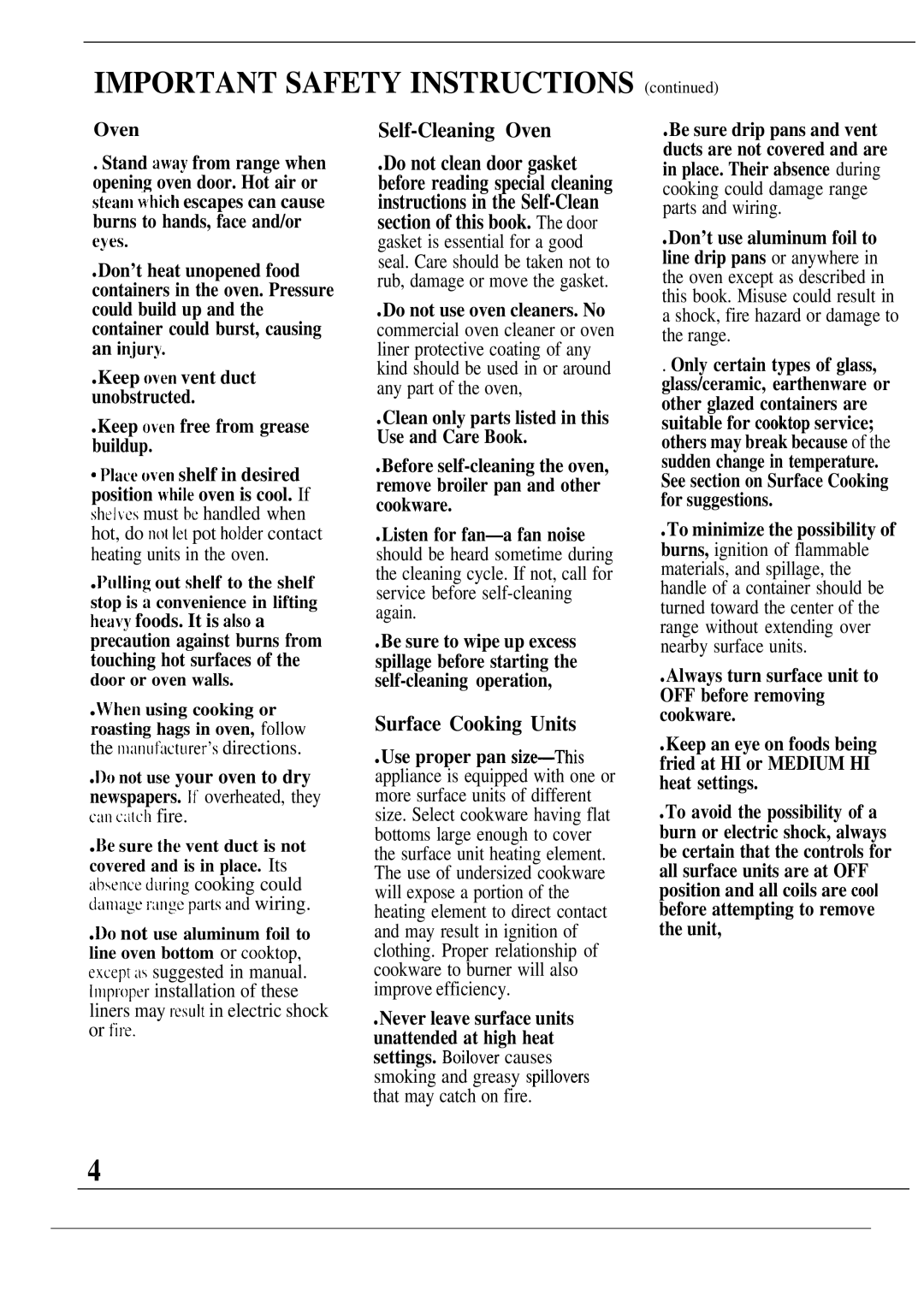RF725GP specifications
The Hotpoint RF725GP is a premium refrigerator designed to meet the needs of modern households, combining efficiency, style, and advanced features. This appliance exemplifies Hotpoint's commitment to innovation, providing users with a reliable solution for food preservation.One of the standout features of the RF725GP is its spacious design, boasting a generous capacity that offers ample storage for groceries, fresh produce, and beverages. The refrigerator is divided into multiple compartments, including adjustable shelves and clear drawers, ensuring easy organization and accessibility of food items. This thoughtful layout caters to diverse storage needs, accommodating everything from tall bottles to large containers.
The RF725GP incorporates advanced cooling technologies, such as a multi-air flow system that ensures consistent temperature distribution throughout the fridge. This technology helps maintain optimal conditions for food preservation, thereby extending the shelf life of perishables and reducing waste. Additionally, the refrigerator features a frost-free design, eliminating the hassle of manual defrosting and ensuring that users can enjoy the full capacity of their appliance without interruptions.
Energy efficiency is another key aspect of the Hotpoint RF725GP. Equipped with an A+ energy rating, this refrigerator not only minimizes electricity consumption but also contributes to lower utility bills. The energy-efficient components are designed to operate quietly, enhancing the kitchen environment without disruptive noise.
Another notable feature is the intuitive control panel, which simplifies temperature adjustments and other settings. Users can easily customize the internal conditions to suit specific food items, ensuring that everything from dairy products to fruits is stored in the optimum environment.
Hotpoint also places a strong emphasis on hygiene. The RF725GP includes antimicrobial protection, preventing the growth of harmful bacteria within the fridge. This feature is crucial for maintaining a healthier food storage environment, providing peace of mind to users.
In terms of aesthetics, the RF725GP has a sleek, modern design that can seamlessly fit into various kitchen styles. The stainless steel finish adds a touch of elegance while being easy to clean and maintain.
In summary, the Hotpoint RF725GP refrigerator is a versatile and efficient appliance that excels in functionality and design. With its spacious interior, advanced cooling technologies, energy efficiency, and user-friendly controls, it stands out as a reliable choice for families looking to enhance their food preservation experience. Whether for everyday use or special occasions, this refrigerator meets the demands of contemporary living with ease and sophistication.

